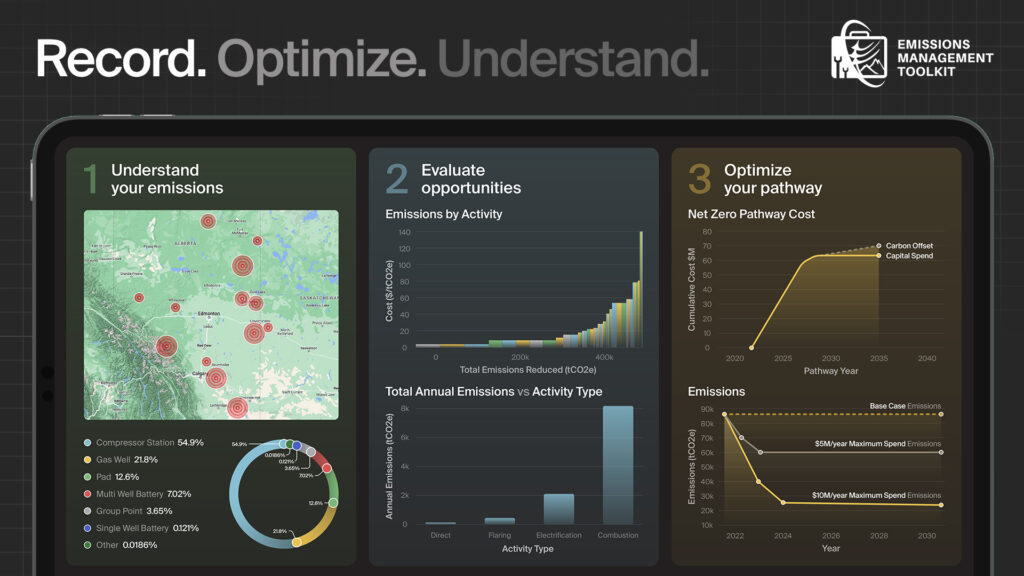Highwood Launches Software Product

Introducing Highwood’s Emissions Management Toolkit (EMT)
MiQ and Highwood Launch Emissions Calculator Tool

Are you ready for natural gas certification? If you’re not sure, don’t worry, you’re not alone. Low-carbon natural gas certification programs like MiQ introduce new opportunities to better understand your emissions. A key requirement is to demonstrate a low methane intensity – in other words, show that your emissions, normalized by gas throughput, fall below a specified threshold.
Evolving Regulations Reflect Improved Understanding of the Methane Challenge

A guest contribution by Ryan Streams, Vice President, Policy and External Affairs, Kairos Aerospace on the evolution of methane regulation in the United States and what it means for our industry
Canada vs. United States Proposed Methane Rules

A cursory comparison of newly proposed methane rules in Canada and the United States for the oil and natural gas industry.
New EPA Methane Emissions Regulations Proposal: Regulatory Framework for Advanced Technology Deployment

An in depth look into the new EPA methane emissions regulations proposal relating to a regulatory framework for advanced technology deployment.
Emissions Reduction Targets Present New Business Avenues

Exploring the new business avenues available to Oil and Gas operators as a result of the implementation of ‘flexibility mechanisms’ relating to the timelines to implement greenhouse gas emissions targets.
Our Nation’s Energy (ONE) Future Coalition

Initiative Highlights from Highwood’s Voluntary Initiatives Report 2022
Oil and Gas Methane Partnership (OGMP) 2.0

The Oil and Gas Methane Partnership (OGMP) 2.0, is 1 of 24 initiatives that are analyzed in-depth in the Highwood voluntary Emissions Reduction Initiatives Report 2022.
Oil and Gas Climate Initiative (OGCI)

Initiative Highlights from Highwood’s Voluntary Initiatives Report
What is Emissions Reconciliation?

Estimating emissions quantities over time is complex – different approaches usually lead to different answers. Reconciling discrepancies among estimates is increasingly common as it can help improve understanding of the overall system.

